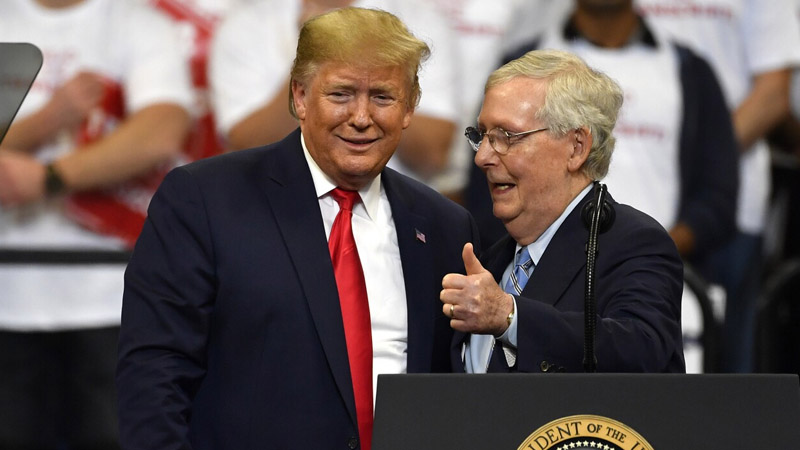GOP Faces ‘Lopsided’ Spending and Fundraising Challenges Ahead of Election

Carolyn Kaster / AP
Republicans are navigating a challenging financial landscape as uneven spending and poor fundraising efforts create hurdles for their Senate candidates, according to a new report by Politico. The GOP’s ad spending strategy is notably “highly lopsided, with a massive amount focused on Pennsylvania,” raising concerns about their broader electoral strategy.
The report highlights that a disproportionate amount of funds is being allocated to defend the relatively secure seat of Senator Ted Cruz in Texas, rather than being spread across more at-risk battleground states. “Senate Republican spending is heavily concentrated in just a handful of races — a distribution that doesn’t match the reality of the battleground map,” the article states. This dynamic, according to Politico, results from poor fundraising among key candidates and the party’s dependency on large, often inconsistent donors to fill the gaps.
Despite the availability of multiple competitive targets, the GOP and its allies are funneling their resources unevenly. “The playing field is ripe with inviting targets, but the advertising from the GOP and its allies is heavily lopsided instead of spread across them. And some of the places where they’re more involved are not the most obvious pickup opportunities,” the report continues.
While former President Donald Trump maintains a close race against Vice President Kamala Harris, many down-ballot Republicans are struggling to gain traction in the polls. Trump and Harris are both focusing heavily on securing swing states, but the GOP’s fundraising “disparities” could be affecting their overall momentum.
Among the most striking examples cited by Politico, the report reveals that “Republicans and their allies are spending more money in a single state, Pennsylvania, than in Michigan, Wisconsin, and Arizona combined.” This strategy has led to imbalances, especially in key battleground states.
The report goes on to detail that “the GOP is spending 2.3 times as much to help former hedge fund CEO Dave McCormick oust a strong Democratic incumbent in Pennsylvania as in Michigan, a similarly purple state that has an open seat.” Additionally, more funds are being funneled into defending Ted Cruz’s seat in Texas—considered competitive but not highly at risk—than in Senate races across three other presidential battleground states.
On the other side, Democrats are strategically focusing their resources in swing states, aiming to solidify their advantage in these crucial areas. Analysts note that the Republican spending pattern raises questions about the GOP’s approach and its potential impact on the outcome of the election.
The report concludes that the “shocking disparities could heavily influence Republicans’ success in November — and raise questions about the size of the majority they’re pursuing,” underscoring the challenges the GOP faces as they head into the election season.


